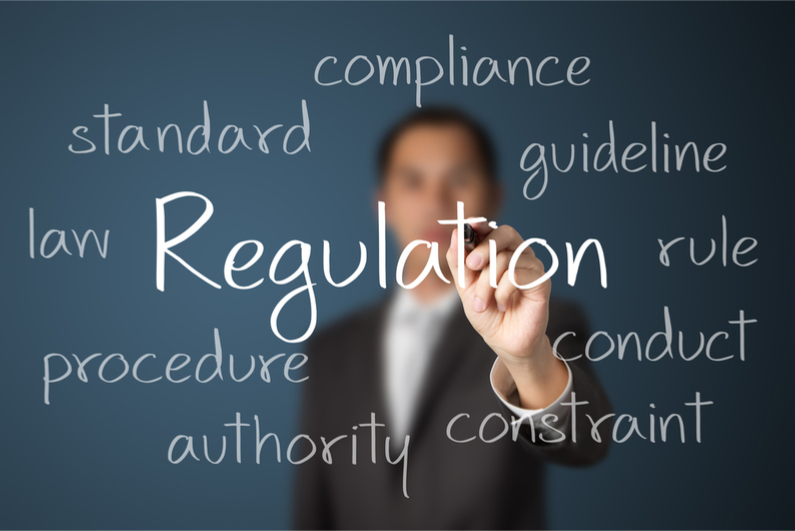It may only be July, but with so much changing in the European regulatory landscape, we thought it would be a good idea to round up the differences.
So far, 2018 has been a pivotal year for the gambling industry. And the regulatory shifts in forward-thinking European countries have spread a ripple effect across the industry, seeing further nations pledging to update their legislation in light of progress in the market.
Sixteen EU countries have either passed or are due to approve major updates to their gaming legislation, but in this article, our reporter, Gina Clarke, focuses on updates in the UK, Malta, Italy, the Netherlands, and Sweden, where the level of impact is expected to be significant.
UK – Regulatory local licensing changes
At the very start of this year, on January 15, a new version of the Licence Conditions and Codes of Practice (LCCP) was published in the UK that was to come into effect on April 4 of the same year. The revised LCCP issued outlines for gaming operators that sets out requirements for both operational and personal licenses that are then regularly updated to reflect changes in the commission’s regulatory strategy.
But arguably the biggest news to date is that The Gambling Commission then went on to launch a consultation on January 25, focusing on three main areas: marketing and advertising, disputes and complaints, and unfair terms. The consultation closed on 22 April 2018, with the proposals falling within the three-year strategy for regulatory updates published in November 2017.
These updates all come following the Gambling Commission’s June 2017 remote gambling and software technical standards (RTS) update. The RTS outlined the technical standards and security requirements that all licensed operators must adhere to. The final set of improvements described in the document came into effect on April 1, 2018, and since then large fines have been issued to operators such as Coral and William Hill.
Malta – Regulated licensing hub
In 2017 the Malta Gaming Authority (MGA) published a white paper outlining plans to reform the territory’s gambling regulatory system. The move was made to streamline previous regulations and regroup all legislation into the Gambling Act. The Gambling Act replaced the previous licensing rules with two types of licenses (B2B and B2C), it increases player protection, grants greater regulatory power to the MGA and reforms taxation for B2B licensees.
The plans were confirmed in January 2018, and some of the proposed reforms were adopted with immediate effect especially around the growing world of cryptocurrency and blockchain regulations. Growing numbers of companies are choosing to locate their headquarters in Malta, and these regulatory advancements are thought to increase the territory’s popularity with gaming businesses further.
Italy – Local licensing
In January 2018 the Italian Gambling Authority (ADM) opened a call for tender for 120 online gambling licenses that will be valid until December 31, 2022. Each license has a fixed fee of €200,000 ($257,000), and applicants had to prove their ability to run a company with a gambling element by demonstrating they had done so in the past. The companies used to demonstrate this ability had had a turnover of over €1.5m ($1.1m) for the two previous financial years. Applications closed on March 19, 2018, and assessments of applicants began in April 2018. The online poker liquidity agreement is also in the limelight of Italy’s regulatory progress.
The agreement made between Italy, Spain, Portugal, and France in July 2017 is expected to be further delayed by at least 12 months. The agreement outlines plans to allow players from the above countries to pool poker liquidity to play against each other online. In terms of taxation, digital transactions have been set a new 3% rate, but it is not clear whether this will apply to gambling services in the long term. The country has also faced political turmoil following the recent election, and as such gambling regulation is likely to be further revised in coming months.
The Netherlands – no outright regulation
The online gambling bill that was outlined by the government in 2014 is still yet to be implemented. The plans for the unlimited availability of licenses for gaming companies were revised by the newly elected government in 2017 to ensure that licensees would have a physical presence in the country. No date has been set for a vote on the proposal as of yet. There was an increase in the taxation rate for gaming companies operating out of the country, with rates going from 29% to 30.1%, the move was made in order to compensate for revenue that was lost due to the protracted introduction of the new licensing rules.
The Dutch Gaming Authority’s consultation into the assessment framework for determining whether or not a game is regarded as gambling has closed, but a release date for the results of the consultation is yet to be announced. It is a hot topic and will be of interest to operators in many other countries too.
Upcoming regulations to watch
In September 2017, the Swiss parliament approved a new Gambling Act, which would allow land-based casinos to offer online casino games under an extension of their license. The act would also introduce website blocking measures of unlicensed gambling offerings. This move was unpopular and led to a referendum in summer 2018 however, the vote was won by 55%.
Still, unrest remains in the Alpine country of 8.3 million people as for the first time Swiss firms will be able to offer online gambling, while foreign-based companies will be shut out of the market. But with some 75,000 people suffering a form of gambling addiction (according to the Addiction Switzerland Research Institute [ASRI] in Lausanne), Parliament has defended the move on behalf of the most vulnerable players.
This could be something that is set to rumble on. With self-exclusion such a hot topic at the moment, will the Swiss bow to pressure and relax the market once again? My eye is definitely on Switzerland as the one to watch.



